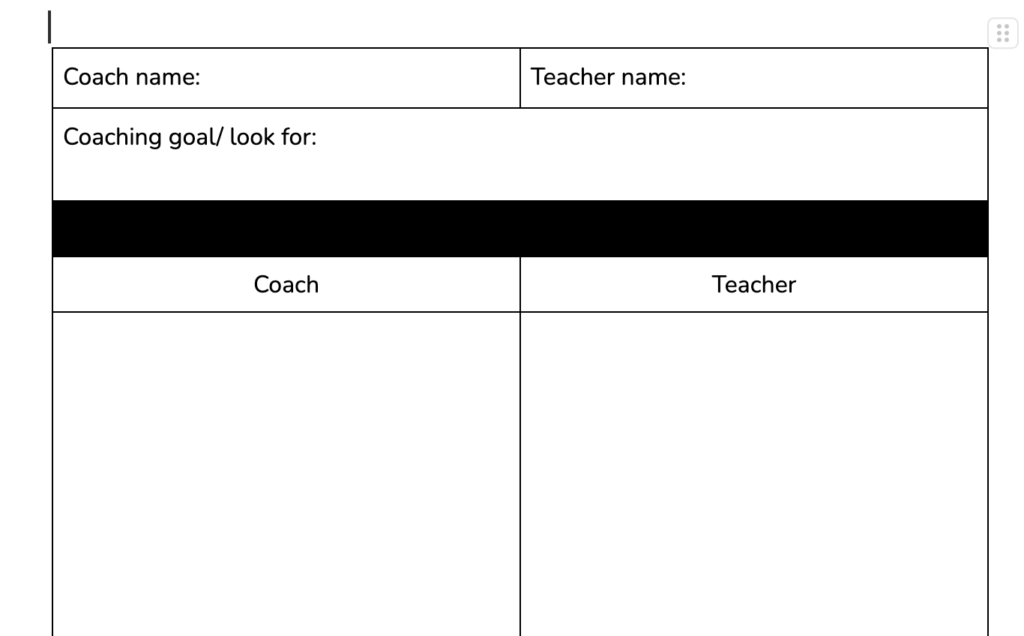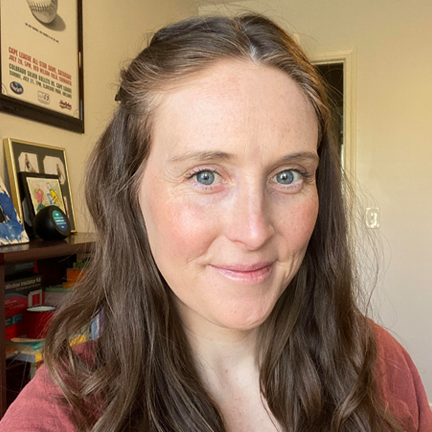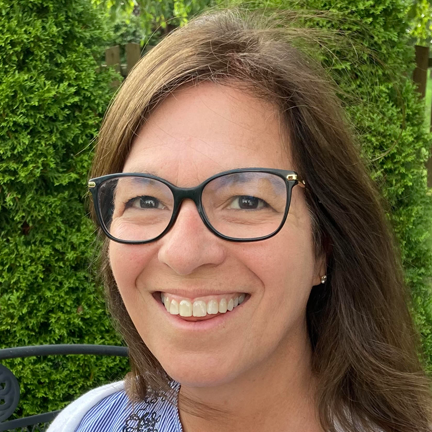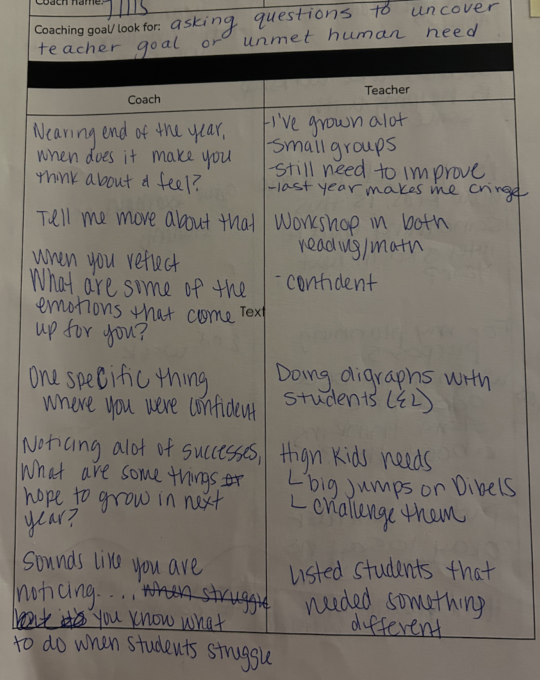If you want to thrive as a Transformational Coach, you need to be prepared to engage in a lot of practice and refining of your skills. I’ve also learned that people need short, asynchronous learning experiences so that they can pace themselves, rewind when necessary, and honor their unique learning needs.
—Elena Aguilar
The end of a coaching year can feel bogged down with un-coaching things: assessments, covering classes, administrative busywork. This has often left us wrapping up our year feeling ineffective and unsuccessful. But after attending a perfectly timed professional development with Elena Aguilar just two weeks before summer break, we were left, instead, feeling reflective and eager for more learning. The session’s focus on having end-of-year reflective conversations with teachers inspired us to tackle this conversation with ourselves. How did the past year feel for us? What were the successes, and what steps led to them? What did we wish had gone differently?
These questions inspired us to construct our own learning, driven by these intentional moves. They can be used anytime throughout the school year—don’t wait until the end of the year!
Seek out personal learning that inspires
That feeling of effectiveness can ebb and flow throughout the school year. Sometimes we are so fully into our work that time for reflection is challenging, yet those are most likely the exact times we need to slow down to take inventory of our personal learning and identify ways that inspire. As instructional coaches we found that examining one aspect of our work could help us grow as coaches as well as energize us.
Here are several ways that could help us reflect and feel inspired:
- Review coaching questioning strategies.
- Study the work of someone who writes about coaching, such as a coach of coaches.
- Focus on improving one coaching move from a list.
Find your people
Many times inspiration can come from our community of co-workers. Finding a person or cohort we can be vulnerable with is a gift. This partner or small group can help us reflect on past practices and pinpoint successes as well as areas to continue to grow. When we are willing to be vulnerable with one another and take advice, we can grow in our craft. After all, coaches need to be coached too.
Set one personal goal
We spent any free time we had devouring Elena’s podcast, each adding ideas and energy to our learning. Soon our notebooks were filled with new ideas, all of which we were eager to try out immediately. At the closing of one of her episodes, Elena shared this:
As we travel along this journey with someone, we bring in other tools. And a transformational coach uses many tools. But it is helpful to learn one tool at a time so that you can acquire the skills of using that tool and so you can feel competent with it, and then you add another.
This was the aha moment we needed. Each of us examined our notes, using our reflection about the year to guide us to a single personal goal. This became the impetus for the next steps in our process. We quickly drafted a simple template to capture our coaching goal and on which our colleagues would record our coaching language. By capturing the conversations, we were better equipped to put our learning into practice as we took these steps in our personally designed professional development. It was time to practice.

Engage in “practice” sessions with teachers
We call these “practice” sessions, because though they were truly initiated as being our coaching practice, every single session ended with actionable next steps to launch in the new school year. First, we reached out to teachers with whom we felt we could be vulnerable. We explained that we wanted to practice one aspect of our coaching. For this observation the focus was on questioning. To add to our vulnerability, we invited other coaches to observe, too, because we knew they wanted to boost their learning. Luckily more than one teacher was agreeable and, in the end, thankful to be a part of the learning.
During the session we scribed every word and recorded the teacher’s responses. Although the coach who invited us to partner was working hard at her craft, in reality we were all able to learn, reflect, and feel energized. The coaches who were invited were inspired to carry this over into the new school year and try practice sessions as well.
Coach-to-Coach Debrief
After the session with the teacher, the coaches gathered our notes and met to debrief. The coaches were interested in the comfort level of the coach who was observed. We asked her questions about how it felt to her and her reflections. We listened to her reflect. Then we all went back to our notes for evidence as we talked. The information garnered from this coaching session gives us a way to co-create a next step with the teacher, and it gives the coach a reflection tool to continue striving to be better, in this case refining questioning.
We realized that this was not just an energizing exercise for the end of the year; it was something we could bring into the new year with teachers with whom we had established relationships. This process can occur at any point in the year. The learning was high for each of us. We had created our own learning lab.




